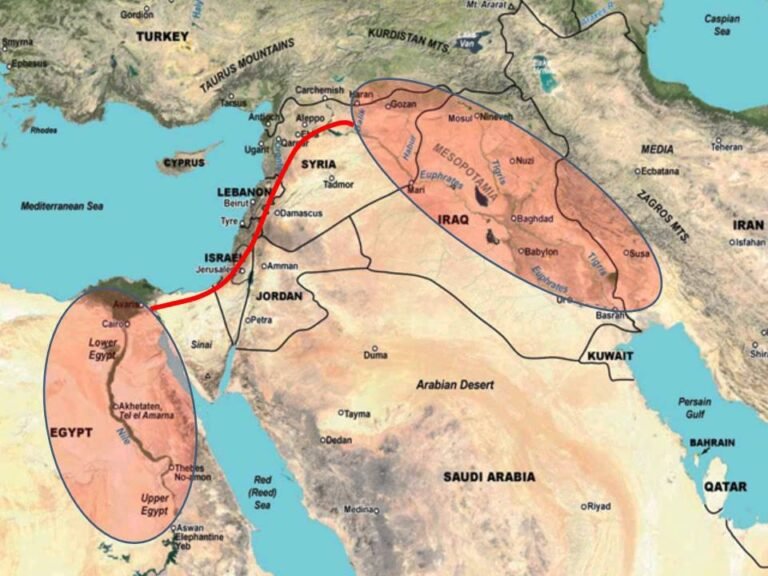Reincarnation in the Bible: Insights and Interpretations
The concept of reincarnation has intrigued humanity for centuries, often sparking debates about life, death, and the soul’s journey. While many cultures and religions embrace the idea of rebirth, the Bible presents a different perspective. Exploring what the Bible says about reincarnation reveals insights into its teachings on life after death, the resurrection, and the eternal nature of the soul. This investigation not only deepens our understanding of biblical texts but also invites us to reflect on our beliefs about existence and the afterlife.
- The Bible does not explicitly mention reincarnation; instead, it presents a view of life after death that includes resurrection and eternal life rather than a cycle of rebirths.
- Key verses, such as Hebrews 9:27, suggest that individuals face judgment after death, reinforcing the idea of a singular life followed by eternal consequences rather than multiple lives.
- Some interpretations of certain biblical texts, like Ecclesiastes 3:20-21, have led to speculation about the soul’s journey, but these are not conclusive endorsements of reincarnation.
- The predominant Christian belief emphasizes salvation through faith in Jesus Christ, focusing on the resurrection rather than the concept of returning to earth in a new body.
Is reincarnation mentioned in the Bible?
The concept of reincarnation, the belief in the rebirth of the soul in a new body, finds no support in the Bible. Biblical texts focus on the idea of eternal life and resurrection rather than the cyclical nature of life that reincarnation implies. Key verses emphasize a single earthly life followed by a final judgment, underscoring a linear spiritual journey rather than a repetitive cycle.
Throughout scripture, themes of salvation and redemption are prevalent, inviting believers to reflect on their moral choices and relationship with God. The absence of any explicit mention of reincarnation in the Bible suggests that this belief does not align with the core teachings of the Christian faith, which emphasize a definitive end to earthly life and the hope of resurrection into eternal life.
Is reincarnation recognized in Christianity?
Reincarnation, while intriguing to many, is not accepted as a doctrine within Christianity. The early Church firmly rejected the concept, viewing it as incompatible with the belief in corporeal resurrection and the fundamental necessity of Christ’s redemptive sacrifices. Despite this, some early Christian theologians, like Valentinus and Basilides, entertained the idea, showcasing a historical complexity in the interpretation of life after death. Ultimately, mainstream Christianity emphasizes a singular resurrection rather than a cycle of rebirth, shaping its unique understanding of salvation and the afterlife.
What is the Bible’s perspective on death and rebirth?
The Bible presents death not as an end, but as a transition into a new beginning through the teachings of Jesus. In John 11:25-26, Jesus emphasizes His role as the resurrection and the life, offering believers a profound promise: even in physical death, they will continue to live. This assurance highlights the transformative power of faith, which transcends the finality often associated with death.
Through this lens, rebirth emerges as a central theme, signifying spiritual renewal and eternal life for those who trust in Him. The message conveys hope, reaffirming that belief in Jesus grants an unbroken connection to life beyond the grave. This profound relationship with the divine invites individuals to embrace a renewed existence, where death is merely a passage to everlasting life.
Unveiling Biblical Perspectives on Rebirth
Throughout the Bible, the concept of rebirth is a profound theme that emphasizes spiritual renewal and transformation. From the conversation between Jesus and Nicodemus about being “born again” in John 3, to the metaphor of becoming a new creation in 2 Corinthians 5:17, scripture underscores the idea that true life begins with a divine awakening. This rebirth is not merely a change of behavior but a complete reorientation of the heart and mind, inviting believers to shed their old selves and embrace a life filled with purpose and hope. By understanding these biblical perspectives, individuals can find clarity in their spiritual journeys, recognizing that rebirth is both a personal and communal experience that connects them to a greater narrative of redemption and grace.
Exploring the Cycle of Life and Afterlife
Life and death are intricately woven into the fabric of existence, each phase a vital thread in the grand tapestry of being. As we journey through the vibrant experiences of life, we cultivate connections, memories, and lessons that shape our identity. The transition to the afterlife raises profound questions about continuity and renewal, inviting us to reflect on what lies beyond our earthly existence. This exploration encourages a deeper understanding of our purpose and the legacy we leave behind, fostering a sense of unity with those who have come before us and those yet to join the cycle. In embracing both the joys and uncertainties of this journey, we discover a profound interconnectedness that transcends the boundaries of life and afterlife.
Scriptural Evidence for Reincarnation
Throughout various religious texts, hints of reincarnation can be discerned, suggesting a cycle of life, death, and rebirth. In Hinduism, the concept of samsara emphasizes the soul’s journey through multiple lifetimes, guided by karma. Similarly, certain interpretations of Buddhism reflect the belief in rebirth as an integral aspect of spiritual evolution. The essence of these teachings points to a transformative journey, where each life serves as a lesson, contributing to the soul’s ultimate enlightenment.
In addition to Eastern philosophies, some interpretations of Christianity also echo the idea of reincarnation. While not mainstream, certain biblical passages and the teachings of early Church figures have been viewed by some scholars as alluding to a cycle of rebirth. This perspective invites contemplation on the nature of the soul and its evolutionary path, suggesting that life’s experiences are not merely finite but part of a broader continuum. The exploration of these scriptural insights fosters a deeper understanding of existence and the potential for spiritual growth across lifetimes.
Theological Insights into Life Beyond Death
The concept of life beyond death has intrigued humanity for centuries, prompting deep theological exploration across various faiths. Many traditions propose that life does not end with physical death but transitions into another realm of existence. This belief offers comfort and hope, suggesting that our actions and faith during our earthly journey hold significance that extends beyond our mortal lives. The promise of an afterlife encourages individuals to seek meaning, purpose, and moral integrity, reinforcing the idea that our choices resonate in eternity.
Theological insights into this profound mystery often emphasize the interconnectedness of the living and the departed. In many religious teachings, the afterlife serves as a continuation of the soul’s journey, where individuals may encounter divine presence, experience spiritual growth, or reunite with loved ones. These perspectives not only shape our understanding of death but also influence how we live our lives. By fostering a sense of accountability and compassion, the belief in life beyond death inspires us to cultivate a deeper connection with one another and encourages a legacy of love and kindness that transcends time.
Ancient Texts and Modern Interpretations
Ancient texts serve as a bridge between past wisdom and contemporary thought, enriching our understanding of human experience. From the philosophical musings of Socrates to the poetic verses of ancient India, these writings offer timeless insights into morality, existence, and the human condition. Modern interpretations breathe new life into these age-old narratives, allowing us to explore their relevance in today’s world. As scholars and enthusiasts alike delve into these works, they uncover layers of meaning that resonate with current societal challenges, fostering a dialogue that transcends centuries. Thus, the study of ancient texts not only preserves history but also ignites a continuous quest for knowledge and understanding in our ever-evolving landscape.
The exploration of what the Bible says about reincarnation reveals a complex interplay of interpretations and beliefs. While traditional Christian doctrine generally rejects the concept of reincarnation, various passages and theological perspectives invite deeper reflection on the nature of the soul and the afterlife. Engaging with these interpretations encourages a broader understanding of spiritual beliefs and highlights the diverse ways people seek meaning and connection beyond this life. Ultimately, the discussion about reincarnation within a biblical context opens the door to a rich dialogue about faith, existence, and the mysteries that lie beyond our earthly experience.







